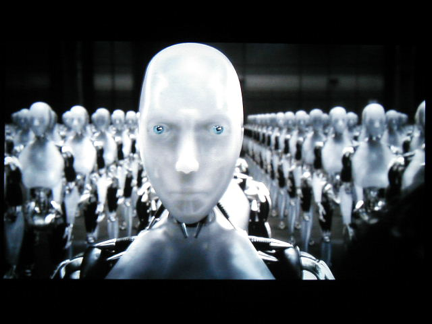By Doug Stephens

Like most people, at least a half-dozen times a day I consult Google for answers. Some of what I search for is trivial, “bet-settling” sort of stuff but there are also times I need more comprehensive, substantive or complex pieces of information for research. Regardless of which, I almost always find what I’m looking for. As a consequence, I’ve been thoroughly conditioned to expect that just about anything I want to know is just a click or two away.
The Retail Disconnect
This assumed level of access to information makes it all the more jarring, when we go shopping, to have even our most basic questions met with shrugging shoulders, blank stares and best guesses by sales associates. Simple stuff like Why is product A better than product B? Or, what does my warranty cover? And even, how does this product work? These routine questions are all too often left unanswered or at least not answered adequately to inspire a confident purchase. It’s all causing tremendous cognitive dissonance for retail customers and forcing more and more customers to seek online information – often while standing in a retailer’s store. Although retailers will point the finger at price as the smoking gun behind showrooming, research shows that in fact, it’s more often the pursuit of adequate and accurate information that drives customers online.
To be clear, this knowledge gap in no way the fault of the salesperson. Rather, it’s an inevitable outcome in a retail industry with notoriously low wages and wickedly high turnover. But it’s that very gap that’s put many retailers in an untenable position.
An Un-trainable Gap
Retailers like Best Buy exemplify the problem. Given the depth of online technical information available to electronics consumers, the customer can (and very often does) know more about a specific product than the employee who is assisting them, all of which negates much of the value of having sales associates in the first place.
As a means of stemming this growing imbalance, Best Buy has made promises of providing more intensive training to its store employees. There is, however, an inherent flaw in this logic. A chain like Best Buy cannot pour significant costs into training while at the same time wading into the deep, dark water of price competition with Amazon, which it has done through its price matching policy. It’s simply not mathematically possible or strategically wise to attempt to do both.
Any retailer who is serious about hiring, training and retaining true product experts, cannot simultaneously be the low-price leader in the market.
Other chains, like Home Depot, have opted to equip their store associates with tablets and other handheld devices, giving them access to the information customers may require. While this isn’t a bad thing, one can’t help but wonder if simply making the employee the keeper of the information doesn’t just add an unnecessary element of friction between the customer and the data they need to make a purchase. In other words, why should a customer have to hunt down a store employee, only to have them consult a database the customer could have accessed themselves, given the opportunity? It’s a recipe for frustration.
Big Bets on Artificial Intelligence
Meanwhile, technology companies like IBM appear to be going all-in on artificial intelligence or cognitive computing as it’s sometimes called. Artificial intelligence is a branch of computer science aimed at creating computers that have the capacity to actually learn and take steps to make themselves more intelligent over time. Many are hailing artificial intelligence as the next major frontier in computing.
As if to prove this, IBM recently announced its plans to pour a billion dollars into it’s Jeopardy dominating A.I. platform Watson to prepare the system for deployment in a wide range of verticals, not the least of which will be retail. In IBM’s desired future reality, Watson is not only the retail sales associate but also the digital shopping assistant that’s carried in the palm of every shopper’s hand. In theory, Watson would become smarter with each new shopper query and recommendation until there is virtually no customer question beyond its intelligence.
Adding to the fervor around artificial intelligence, Google recently purchased the U.K. based A.I. company Deep Mind. Soon, Deep Mind’s founders will be working with Google’s resident inventor and futurist Ray Kurzweil, who has openly mused about creating a search engine so sophisticated that it becomes like a “cybernetic friend.” With deep artificial intelligence at the core of Google, consumer products like Google Shopper will learn and even begin to anticipate our shopping needs and preferences.
The Autonomous Store
At the same time, companies like Seattle’s Hointer have been honing and refining their fully-automated store concept. Using a combination of robotics, mobile apps and self-checkout, the brand has all but eliminated the need for human staff in the store. Product information is easily accessible using the brand’s app and with clothing items delivered robotically to the fitting room, customers need not wait for an available salesperson. Self-checkout eliminates the need for cashiers.
Fewer Humans With Better Jobs
This new wave of technologies represents nothing less than a New Industrial Revolution where much of the service work in retail will now become the domain of systems, apps and robotics.
Regrettably, for the vast majority of retail workers, this revolution will likely not be generous, kind or welcoming. In fact, a recent study out of Oxford University estimates that the likelihood of retail sales people being replaced by technology within a decade is approximately 92 percent. This places them among the most likely of all job types tracked by the Bureau Of Labor Statistics to be replaced by technology. Much, like manufacturing was assailed by robotics through the 1980’s and 90’s, much of the service work in our economy will become the domain of cyber-assistants in the decades to come.
On an optimistic note however, one can also see an emerging era of opportunity for higher-skilled and very human retail employees – true Brand Ambassadors who embody the brand and animate the experience.
New Skills For A New Era
But in order to add value, this new breed of retail associate will have to be super-users of the brand’s products, devout believers in the brand’s creed and avid co-creators who love working with customers to tailor the perfect product solution. They must be people with innate likability and capability – expert at forging a connection with their customer. Far from being slaves to the technology, they will be the masters of it and skilled in using it to surprise and delight their customers.
value, this new breed of retail associate will have to be super-users of the brand’s products, devout believers in the brand’s creed and avid co-creators who love working with customers to tailor the perfect product solution. They must be people with innate likability and capability – expert at forging a connection with their customer. Far from being slaves to the technology, they will be the masters of it and skilled in using it to surprise and delight their customers.
And for this, make no mistake; they will be paid not just fairly, but handsomely. No longer merely regarded as interchangeable input costs, the new breed of retail salesperson will be seen as a unique and highly valued brand asset and an investment in the brand’s future.

